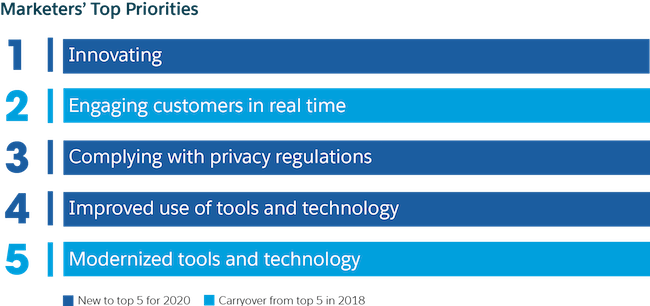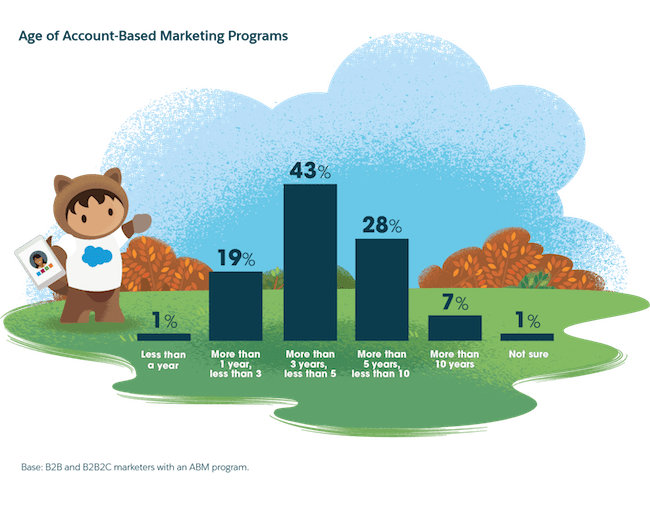

Don't just drift if you can control the changes. Where is marketing headed in 2020?
Today, as we hope the pandemic is coming to an end, everyone is interested in how to get back to normal from “crisis mode” and how business can regain momentum after a few months of stagnation. The current situation puts even more pressure on marketers to stay ahead of the competition and deliver a cross-platform and outstanding customer experience in the online space as well.
Today, as we hope the pandemic is coming to an end, everyone is interested in how to get back to normal from “crisis mode” and how business can regain momentum after a few months of stagnation. The current situation puts even more pressure on marketers to stay ahead of the competition and deliver a cross-platform and outstanding customer experience in the online space as well.
As a marketing leader, I consider it extremely important to follow global professional trends, and I believe that the coming period will be conducive not only to innovation, but also to the spread of customer-centric business models. This is also shown by our partner Salesforce's “State of Marketing” report, which presents the current situation through the eyes of about seven thousand marketing executives. The survey focuses on the strategic tasks, challenges and technology solutions that have occupied managers during these months. Here are four, in our opinion and Salesforce, extremely interesting and important findings from the research.

1. Innovation above all
According to the results of the research, the intensity and quality of communication between market participants and customers has become more important than anything during the pandemic. According to 84% of customers, the experience with a company matters at least as much in making consumer decisions as the product or service that the company offers.
According to the marketers surveyed, monitoring and satisfying customer needs in real time is becoming increasingly important. This incredibly fast flow of information is demonstrated by the fact that, according to previous research by Salesforce, 71% of customers now use multiple channels of communication to make and execute a consumer decision. People now expect “dynamic interactions” in business communication processes that are absolutely individualized.
It is at this point that marketing and IT meet, which is an exciting and challenging field for our company, United Consult, through which we can help more and more of our clients to achieve their business goals year by year.
Marketers in Salesforce research named innovation in this regard as one of their top priorities for achieving real-time customer engagement. They believe that the symbiosis of marketing and IT is more important now, during the coronavirus pandemic and beyond than ever before. Openness to digital transformation will be a critical part of business success in the coming years.
But what does this mean in practice? Innovators in the marketing industry strive to find more and more digital access points for customers. Mobile and mobile apps are important tools for this: their use for marketing purposes has increased by 34% in two years, while mobile video content has grown by 21%.
2. Anyone who uses AI is doing well
Until now, many may have viewed AI for marketing as a futuristic, over-hyped passion of developers, but today's events — when personal customer contacts have been minimized due to the pandemic — have perfectly demonstrated its viability and importance. While in 2018, only 29% of marketers used some kind of AI solution in their work, today 84% reported it.
Marketers now make decisions about the strategy to be applied based on the data they collect about customers, often through automations. They work from more and more databases and on more and more platforms, which is why standardization and harmonization of data is also an important challenge today. The work of marketers is significantly more efficient by the use of AI.
Trends are well indicated by the fact that in 2021, Dutch marketers plan to use 50% more data sources to “feed” AI than the global average. Among the activities of using AI for marketing purposes in certain industries - obviously not by chance - the IT sector stands out highly, where the amount of resources would be increased by 60% already this year.
3. The cornerstone of B2B
The pandemic situation has brought B2B customers these days to require the same level of empathy and care as B2C customers. Account-based marketing (ABM) and AI can be of great help to meet this challenge. Thanks to properly detailed customer data management frameworks, as well as automated strategy creation, specialists create more and much more personalized campaigns for their B2B clients.
92% of B2B marketers who participated in the Salesforce survey use some form of ABM system in their work. By the way, most of the ABM programs are very recent, 64% of them started in the last five years. Systems are becoming more sophisticated, with 68% already using some form of automation.
In Hungary, the rise of more sophisticated marketing automation systems has been observed primarily in the B2C sector, but in recent years we have implemented coordinated CRM and marketing automation systems for more and more B2B customers.
We also perceive what is described in the research, there are more and more demands and inquiries from our customers, who do not want to lag behind global trends, which are not only dictated by the competitive situation dictated by the market, but also actively shaped by the pandemic.

4. Technology is the future
Where is marketing headed? What does the future bring? No one can accurately predict this. What is certain, however, is that the crisis due to the coronavirus pandemic has led companies to look for new ways and new ways to reach their customers and maintain relationships.
Marketers expect that in the next ten years, the development of technology will have a greater impact on our lives than today. Worldwide, the number of customers available on online channels is dramatically expanding, 5G networks are launching and virtual reality is being completed. 60% of marketers say 5G will also have a significant impact on marketing, and growing internet penetration will further broaden the market.
5. What does all this mean?
In 2020, the focus is really on innovation, but let's not forget that it is a tool to achieve customer-centricity, which is often mentioned in service design, in which digital technologies actually play a major role.
With a 360-degree marketing communication platform, we will not only be able to provide an exceptional customer experience, but the common interface also gives us the opportunity to radiate a unified image to our existing and future customers on all channels. If at some point, now is definitely not worth missing out!
Author:
Violin-Cser Lilla
Marketing Manager
Source:
https://www.salesforce.com/blog/2020/05/top-marketing-trends-navigate-change.html
The study can be downloaded here:
https://www.salesforce.com/form/pdf/6th-state-of-marketing/?sfdc-redirect=227
Check out the additional our articles!







.png)







